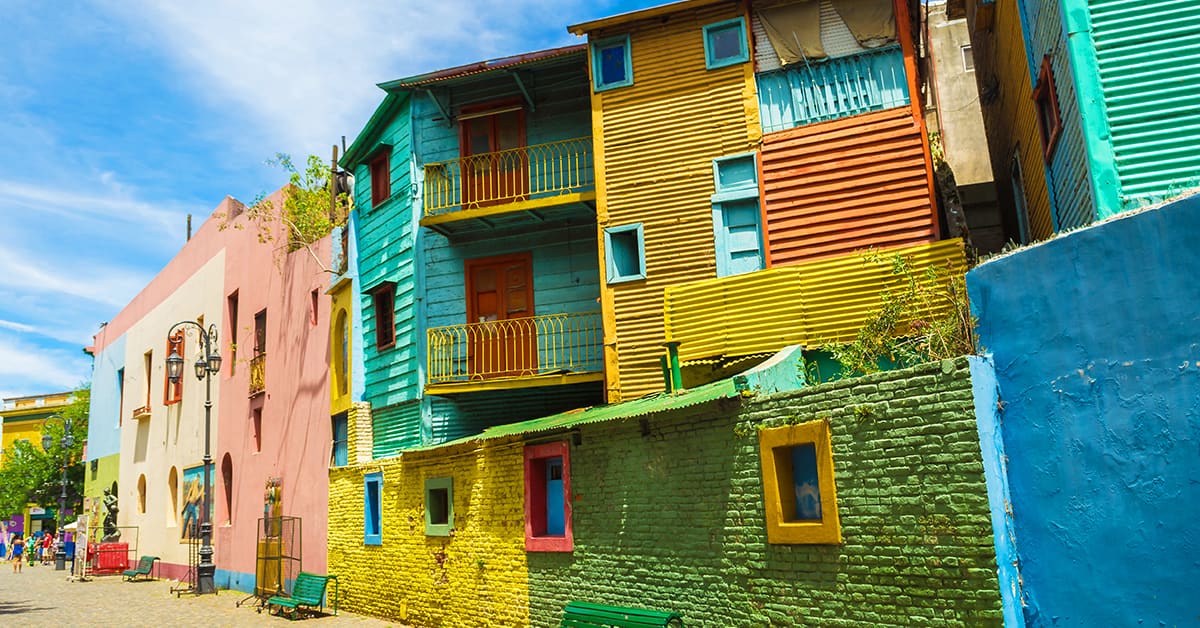Argentina is strengthening its tech sector to attract new investment, but political uncertainty remains a deterrent.

|
ARGENTINA: VITAL STATISTICS |
|---|
|
Location: South America |
|
Neighbors: Chile, Bolivia, Paraguay, Brazil, Uruguay |
|
Capital city: Buenos Aires |
|
Population (2021): 45,481,395 |
|
Official language: Spanish |
|
GDP per capita (2019): $9,912.30 |
|
GDP growth (2021): 4.9% |
|
Inflation (2020): 40%+ |
|
Currency: Peso |
|
Investment promotion agency: Argentine Agency for Investment and International Trade |
|
Investment incentives available? Government incentives make no distinction between foreign and domestic investors; some refunds on VAT, or other tax incentives for local production of capital goods; employment training programs, often free to participants; tax-exempt trading areas |
|
Ease of Doing Business rank (2020): 126 |
|
Corruption Perceptions Index rank (2020): 78 |
|
Political risks: Unstable government, internal wrangling within coalition |
|
Security risks: Borders closed at time of writing, most nonresident foreign nationals barred; theft problems; protests, occasionally in front of US-affiliated businesses; union disputes |
|
PROS |
|---|
|
Increase in soy prices expected to boost economy |
|
Reliable and educated workforce |
|
CONS |
|---|
|
Currency controls |
|
Corruption |
|
Inefficiencies in the judicial system |
|
Lax enforcement of intellectual property rights |
|
Sources: Bloomberg News, Buenos Aires Times, CoronaTracker, GardaWorld, Government of Canada Global Travel Advisory, Intelligent Protection International Limited, International Monetary Fund, Reuters, Santander Trade, Transparency International, US State Department, World Bank, World Population Review |
|
For more information, check out Global Finance‘s Argentina Economic Report data page. |
For investors who take the long view, Argentina offers a range of opportunities in energy, natural resources—including copper, lithium and fertile land—high-end services and tourism. Its enticements have drawn a range of foreign multinationals, mostly from the US and EU, according to Santander Trade, including Carrefour, General Motors, Peugeot, Sony, Telefonica and Walmart.
Yet underlying weaknesses and longstanding political obstacles remain a drag on economic growth—and are now exacerbated by the Covid-19 crisis. “The relationship [between the health and economic crises] is important because it will shape the hard lines of any type of policy or program for the current administration—the limits of what they can do,” says Mariano Machado, Buenos Aires–based senior analyst at the global risk consultant Verisk Maplecroft.
During the second quarter of 2020, Argentina suffered a 16.2% decline in GDP, according to the Instituto Nacional de Estadística y Censos; the World Bank predicts it will net out at -10.6% for this year. For 2021, the Bank sees “fading uncertainty surrounding the recent debt restructuring” as stimulating private investment, but some observers worry that consumption will be lackluster due to pandemic-driven loss of wages, unemployment and higher personal debt.
Machado expects tourism to play a major role in the country’s economic recovery, and investment will be needed in both tourist services and infrastructure. BBVA Research projects as much as 6% growth this year.
While the pandemic has taken a toll, Argentina’s attractiveness is also limited by policy choices. Last year, LATAM Airlines Group, which had filed for bankruptcy, ceased domestic flights in Argentina, complaining to the Labor Ministry that poor labor relations and a weak currency, among other issues, rendered operations less profitable than elsewhere. German chemicals company BASF and French automobile-glazing maker Saint-Gobain Sekurit also announced plans to move production out of the country. Volkswagen and Ford Motor shelved investment projects.
Those choices may be driven by uncertainty as much as policy. “The possibility of rule changes overhangs long-term investment,” Machado explains. “In two years’ time you can have all the rules changed.”
Nevertheless, Argentina has growing strength in technology. It is the home base of six of Latin America’s unicorns, including Auth0, Despegar, Globant, MercadoLibre, OLX and Prisma Medios de Pago. It is Mercosur’s leading exporter of software, IT and audiovisual services, according to the Argentine Agency for Investment and International Trade. Last fall, Congress passed a bill with tax incentives for startups as well as for established players that train and hire workers.
It’s Argentina’s skilled workforce, ultimately, that must leverage this moment to establish the nation’s tech prowess. In January, Dublin-based Accenture acquired Wolox, a 300-person-strong cloud native and agile development company based in Buenos Aires, praising the local talent. “The pandemic is speeding up digital priorities,” Minister of Productive Development Matías Kulfas said at a press conference announcing the new tax incentives. “We have to see it as an opportunity to strengthen foreign investment.”



